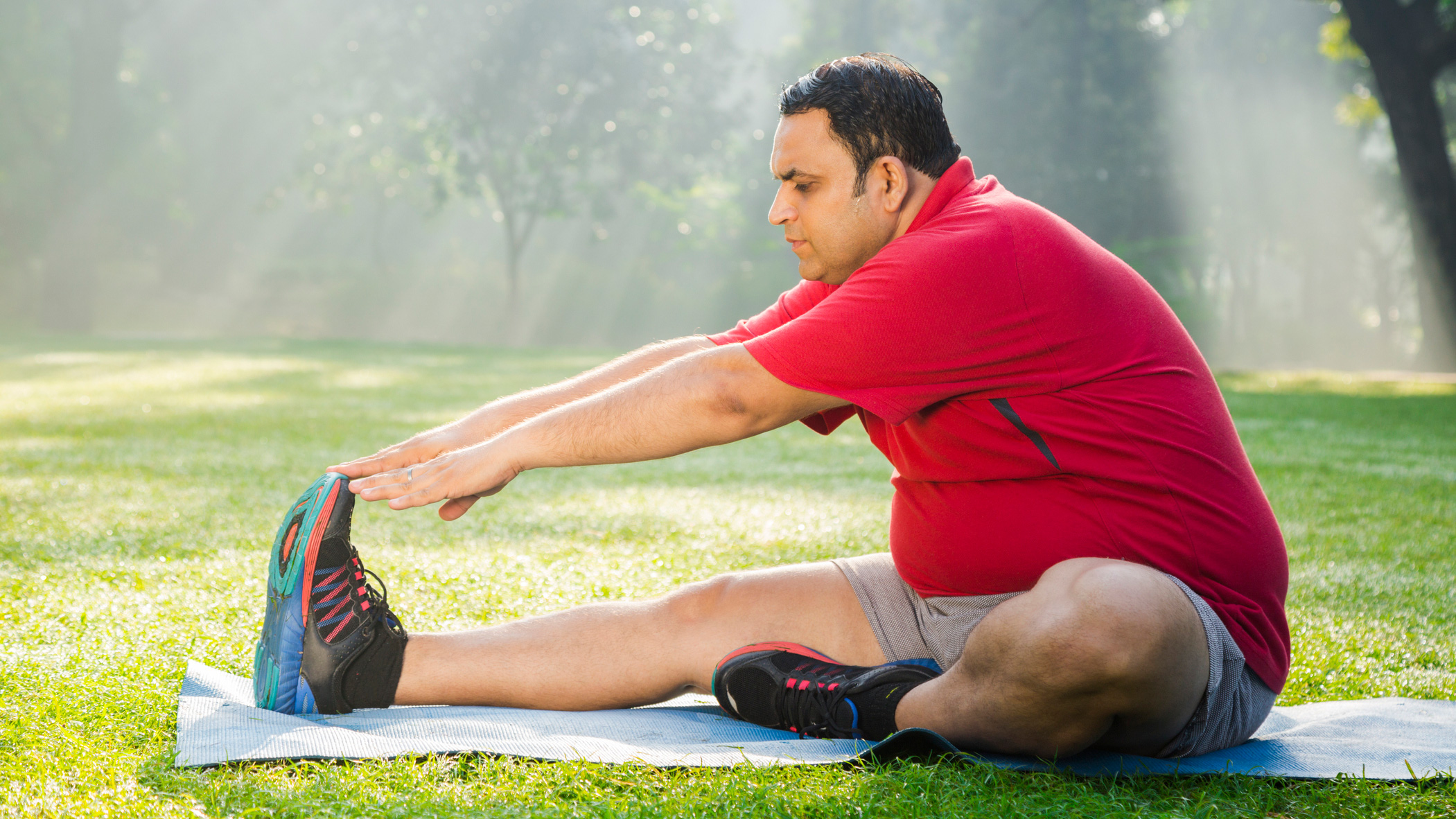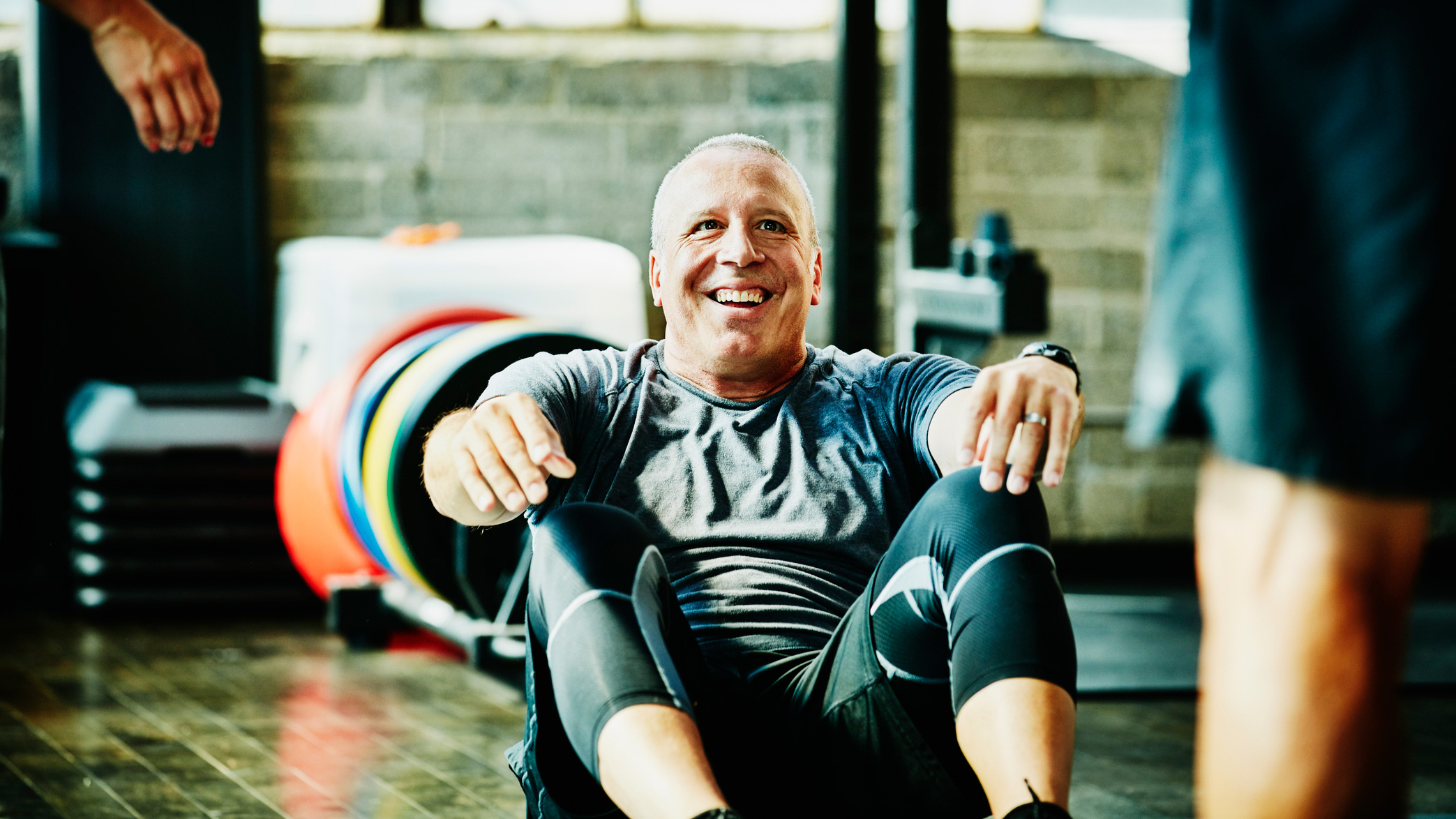Over 35? Eight men reveal the truth about their weight gain, and how to beat the odds
In-depth interviews with overweight men reveals vital information on how to lose weight in middle age


Start your week with achievable workout ideas, health tips and wellbeing advice in your inbox.
You are now subscribed
Your newsletter sign-up was successful
If you're over 35, you might notice you're slowing down a little on the health and fitness side. Increased responsibilities to your family and job, coupled with the natural processes of age, means it's harder to exercise and eat like we used to.
Sure, some of the best exercises for weight loss only take a few minutes or so to complete, and many healthy meals (check out our best vegan cookbooks for some inspiration) can be whipped up relatively quickly. However, it's not always as easy to maintain a healthy lifestyle as it sounds on paper; the need for convenience, and the mental load on us as responsibilities increase, encourage some of us to turn to high-calorie comfort eating.
At least, that's what happened in the following study. Researchers from Anglia Ruskin University did in-depth interviews with eight men, aged between 35 and 59 – otherwise known as middle age. All the participants were overweight or obese, according to their body mass index, or BMI. The interviews explored factors such as their relationships with food and diet, why they felt they had put on weight, whether they tried to keep the weight off in any way, and how they felt about being overweight or obese.
Typically, two answers shone out above the rest as the root causes of their weight gain: family and employment.
One participant was 43 years old with a BMI of 38.9. He said: "I've always been quite active, always played football, always done something and then the kids came along, that stopped so before you know it you're not younger and I was eating the same sort of stuff."
Another participant, also 43 and with a BMI of 39.6, said: "There's more pressure at work now because I've got more of a managerial role. So there's more responsibility and more time there. So, there's less flexibility in when you eat."
Another said: "I feel down, what gets to me the worst is buying clothes and you go into a shop and see a really nice suit and you know they won't have it in my size and a size 54 chest you know is getting quite ridiculous. It's got to stop."

Researchers found generally the weight gain was associated with a loss of self-esteem and low mood, and the participants were aware of this. However, attempts to change their circumstances were infrequent and short-term. So, if you're in the same age bracket and position as these men, how do you go about changing your circumstances and start losing weight with limited time and resources?
Start your week with achievable workout ideas, health tips and wellbeing advice in your inbox.
It starts not with running, but reading. The researchers also found the participants showed "poor awareness" of factors that cause weight gain. They concluded the men would benefit from "an education around food, such as food selection, integration of diet, sustainable weight management practices, in order to develop a more complete understanding of the relationships between food and lifestyle."
Making small, sustainable choices over a long period of time is absolutely key. Re-examining your portion sizes can help limit the number of calories you eat (our portion size guide can tell you more) while offering very little impact on your lifestyle. Keeping a food diary can help you make conscious choices about what you're eating rather than "mindless binging", reportedly doubling your rate of weight loss according to research.
Worrying you have no time to work out? Look at how much you're moving every day, even if it's not part of an organized fitness session. Simply walking to lose weight can contribute to your overall health, whether you get up early and walk to work, take a stroll on your lunch break, or start watching TV while walking on the best treadmill instead of lounging on the sofa. These small changes can help, over time, spur bigger ones.
Matt Evans is an experienced health and fitness journalist and is currently Fitness and Wellbeing Editor at TechRadar, covering all things exercise and nutrition on Fit&Well's tech-focused sister site. Matt originally discovered exercise through martial arts: he holds a black belt in Karate and remains a keen runner, gym-goer, and infrequent yogi. His top fitness tip? Stretch.
